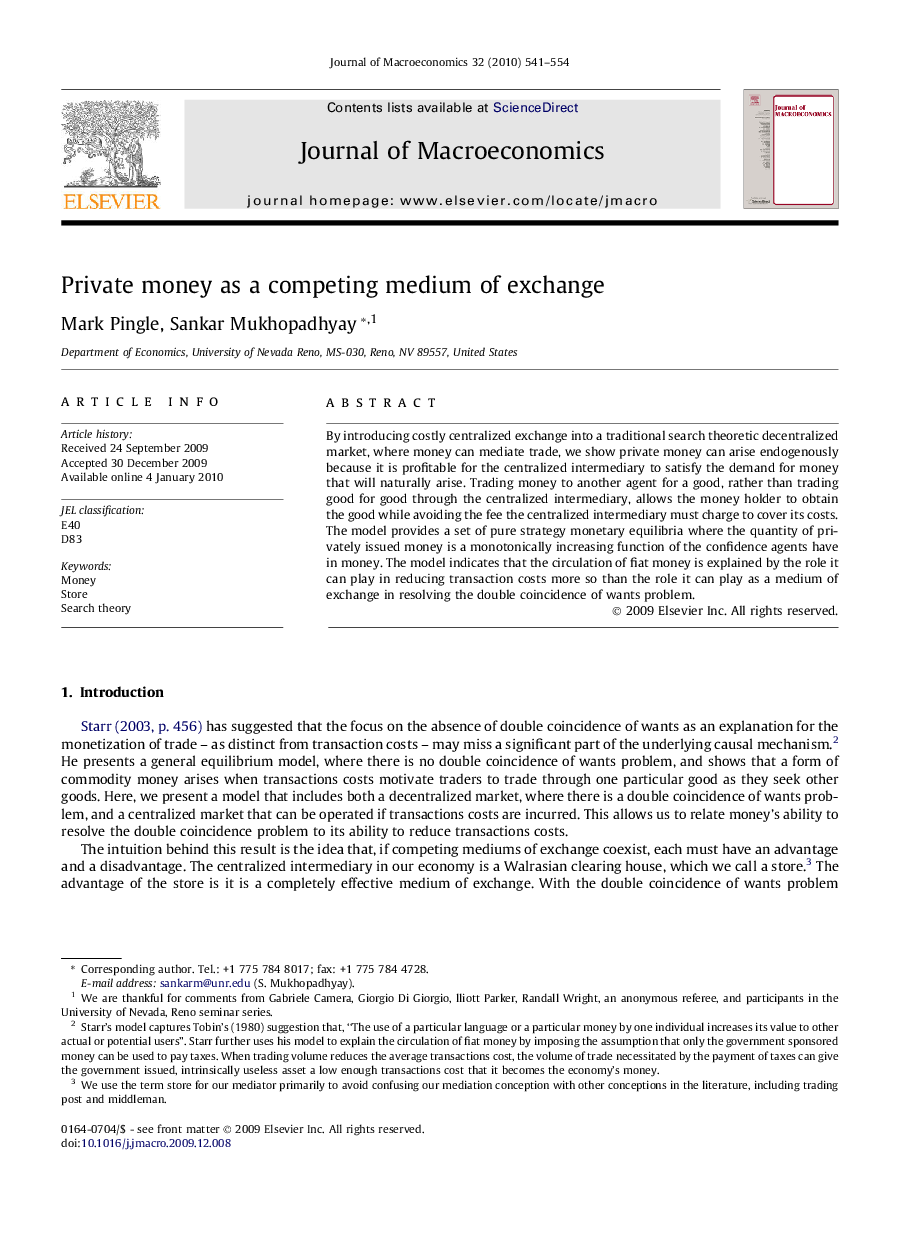| Article ID | Journal | Published Year | Pages | File Type |
|---|---|---|---|---|
| 964982 | Journal of Macroeconomics | 2010 | 14 Pages |
Abstract
By introducing costly centralized exchange into a traditional search theoretic decentralized market, where money can mediate trade, we show private money can arise endogenously because it is profitable for the centralized intermediary to satisfy the demand for money that will naturally arise. Trading money to another agent for a good, rather than trading good for good through the centralized intermediary, allows the money holder to obtain the good while avoiding the fee the centralized intermediary must charge to cover its costs. The model provides a set of pure strategy monetary equilibria where the quantity of privately issued money is a monotonically increasing function of the confidence agents have in money. The model indicates that the circulation of fiat money is explained by the role it can play in reducing transaction costs more so than the role it can play as a medium of exchange in resolving the double coincidence of wants problem.
Keywords
Related Topics
Social Sciences and Humanities
Economics, Econometrics and Finance
Economics and Econometrics
Authors
Mark Pingle, Sankar Mukhopadhyay,
